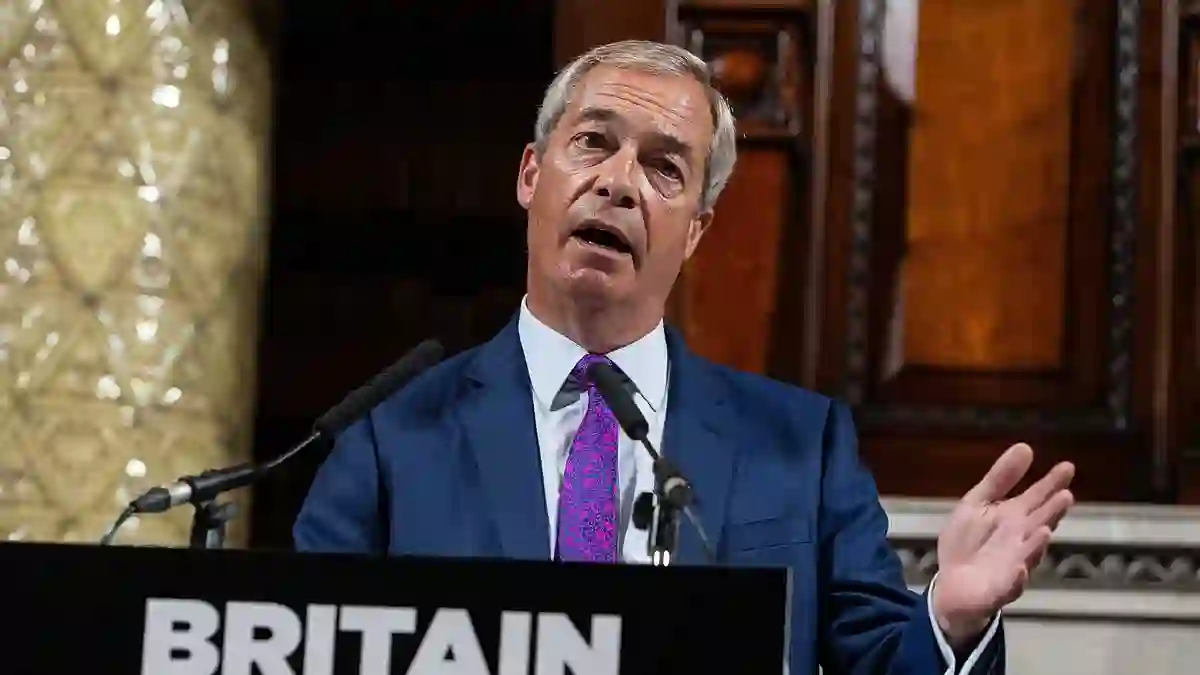Let’s be honest—no one’s seriously expecting Nigel Farage to walk into Number 10 tomorrow.
Not even his own inner circle. And that’s not necessarily a weakness.
In fact, for where he is politically right now, it might be his greatest strength.
According to one of his allies, even Farage himself knows Reform UK isn’t ready to govern just yet. The party needs more structure, more candidates, and most importantly, a real policy platform.
No one’s under the illusion that Reform can just cruise into government. And yet—he’s already having an impact.
Election Gains Undone by Chaos
Reform made headlines with its big leap at last year’s General Election and the Runcorn by-election win this May.
But any momentum gained has been quickly weighed down by internal drama and scandal.
The party now has just four MPs—fewer than it did a year ago.
Farage has promised to clear out the fringe elements, but no one really knows who or what will emerge when he eventually rolls out 650 parliamentary candidates.
Critics are right to ask: is this really a government-in-waiting?
Farage Isn’t Trying to Win Now—He’s Trying to Be Heard
Here’s the thing: there’s no General Election on the calendar anytime soon. Probably not for another three or four years.
So, Farage doesn’t need to look like a statesman yet.
He just needs to sound different from the Prime Minister we already have—and right now, he’s doing exactly that.
He’s not offering polished, costed policies. He’s offering outrage and straight talk—and that’s resonating with voters who feel ignored.
Punchy Promises, But Light on Details
At a recent press conference, Farage took on law and order.
He pledged to build five new “Nightingale prisons,” each named after historic law enforcement figures like Sir Robert Peel.
His message? Criminals should expect “serious justice” by 2029 if Reform gets its way.
Labour wasn’t impressed. An anonymous government voice called the plan “unfunded and undeliverable” and pointed to their own ongoing prison expansion.
They’ve added 2,400 cells already, they claimed.
And yes, Labour has technically been building prisons. But at the same time, plenty of criminals have been pouring out of them.
So for many voters, the government’s “progress” feels like window dressing.
Sure, Farage’s Ideas Don’t Always Add Up—But Neither Do Starmer’s
It’s fair to say some of Farage’s proposals lack proper funding or planning.
But so do many of Keir Starmer’s. Just look at Labour’s NATO summit promise to raise defence spending to 5% of GDP, following another uncosted promise to raise it to 3.5%. Or the back-and-forth on winter fuel allowances and welfare.
Criticising Farage for being vague only works if the government isn’t doing the same thing—and right now, they are.
At least, the article jabs, Farage’s “fag packet” budgeting exists.
Starmer and Rachel Reeves are apparently writing theirs on the back of rolling papers.
Populist, Yes—but Speaking the Voters’ Language
Farage may be playing to the crowd, but he’s hitting the right nerves.
Crime, immigration, economic insecurity—he stays on message, and it’s a message people are hearing.
Meanwhile, Starmer’s government seems distracted.
There’s internal disagreement about whether they should take Reform on directly, or pivot the conversation to safer ground like education and health.
So far, the pivoters are winning—at the cost of sounding completely out of touch.
When voters raise concerns about immigration, Labour offers free school breakfast clubs.
That disconnect is exactly where Farage is gaining traction.
Farage Sounds Like He’s Listening—Even If He Can’t Yet Deliver
Whether or not you like Farage, there’s no denying he has a knack for making people feel heard.
When he says repeat serious offenders should face life imprisonment, it may not be the most practical or coherent policy—but it lands.
People don’t expect him to be running the prisons tomorrow. They just want someone who gets their frustration.
In contrast, Starmer often comes across as cautious and distant.
Remember when he described Britain as an “island of strangers”? He stood by it for five weeks—then backtracked and apologised with emotion. T
he public doesn’t want constant apologies. They want someone who stands firm and speaks clearly.
Britain Feels Under Siege—And Farage Is Tapping Into That Mood
Many Brits feel like their country is under attack—not just physically through migration, but emotionally and culturally.
They feel overwhelmed by forces they can’t control and leaders they no longer trust.
That doesn’t mean all their fears are justified. But that’s not the point.
They want someone who reflects their reality, not someone who lectures them on why they’re wrong. Right now, Farage is filling that role.
Starmer Promised Change—But He’s Seen as Part of the Problem
The Prime Minister said he’d bring change. What many people feel they’ve gotten instead is more of the same—just in a different suit.
For a public desperate for leadership that connects, Starmer seems to be drifting.
And Farage, for all his flaws, is stepping into the vacuum.
Every time Farage speaks, backlash follows. But he doesn’t retreat. He doubles down.
That contrast—between a man who charges forward and one who nervously rewrites speeches—is becoming more and more noticeable.
In This Moment, Empathy Is Beating Expertise
The British public isn’t asking for perfection. They’re asking for recognition.
They want someone to reflect their anxieties, not talk down to them. And for now, that voice isn’t coming from the Prime Minister—it’s coming from Nigel Farage.
He may not be ready to run the country. But he’s more than ready to speak to it.
And that’s why his message is landing.
